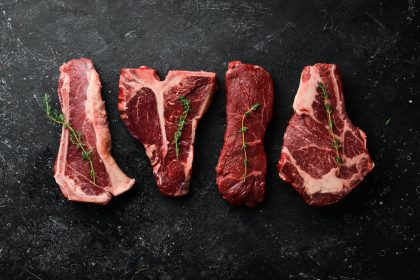Celebrity nutritionist Jennifer Maxwell, who works with A-list actors preparing for physically demanding roles, has noticed a troubling trend. Her clients often reach for bargain frozen meals during busy filming schedules, not realizing these convenient options might sabotage their health goals. Now, she’s sharing her insights about the true cost of cheap frozen foods.
What’s really in your freezer
Behind the convenient packaging and appealing price tags lurks a concerning reality about bargain frozen foods. Maxwell, along with other leading nutritionists who work with Hollywood’s elite, warns that the real cost extends far beyond the checkout counter. These experts have observed how certain frozen meal ingredients can affect everything from energy levels to skin appearance.
The nutrition gap
The quest for affordability often leads manufacturers to compromise on ingredient quality, explains renowned chef Michael Torres, who previously worked at a major frozen food company. The practice of substituting premium ingredients with cheaper alternatives has become increasingly common. For instance, high-quality proteins might be replaced with processed alternatives, while fresh vegetables give way to less nutrient-dense options.
The preservative problem
Los Angeles-based nutritionist Sarah Chen, who advises several streaming series productions, points out the extensive use of preservatives in budget frozen meals. These additives, while necessary for extended shelf life, can accumulate in the body over time. Chen has noticed a direct correlation between her clients’ consumption of heavily preserved foods and their energy levels during demanding shooting schedules.
Environmental impact explained
Celebrity chef and environmental advocate James Peterson reveals the hidden environmental toll of bargain frozen foods. The production process often involves less sustainable practices, from ingredient sourcing to packaging choices. Peterson, who transformed the meal program on several major film sets, emphasizes how cheaper frozen options typically require more resources for preservation and storage.
The taste compromise
Award-winning chef Maria Rodriguez, known for her work with celebrity clients, explains how cost-cutting measures affect flavor profiles. Premium ingredients and careful preparation methods get sacrificed in the race to lower prices. Rodriguez has helped numerous stars transition away from dependent on these convenience foods by teaching them simple, nutritious alternatives.
Understanding label claims
Dr. Rachel Kim, a nutritionist who works with television productions, warns about misleading packaging claims. Terms like “natural” and “made with real ingredients” can mask concerning aspects of cheaper frozen foods. Her work with actors has revealed how these marketing tactics often disguise the true nutritional value of these products.
The fresh versus frozen debate
Maxwell emphasizes that not all frozen foods pose concerns. In fact, some premium frozen options can rival fresh alternatives in nutritional value. The key lies in understanding how to differentiate quality frozen foods from their bargain counterparts. She guides her celebrity clients toward frozen options that maintain their nutritional integrity without relying heavily on preservatives.
Making informed choices
Hollywood’s top food experts agree that convenience doesn’t have to mean compromise. They recommend examining ingredient lists carefully, focusing on products with recognizable ingredients rather than chemical preservatives. Price points often indicate quality, but even budget-conscious shoppers can find better options by knowing what to look for.
The professional perspective
Food scientist Dr. Thomas Wright, who consults for several major studios’ catering services, explains the technical aspects of frozen food production. Higher quality frozen meals undergo flash-freezing processes that better preserve nutrients, while bargain options might use slower freezing methods that can degrade nutritional value.
Impact on performance
Athletes and actors working with performance nutritionist Lisa Chen have noticed significant differences in their energy levels when switching from bargain to premium frozen options. Chen explains how the quality of ingredients directly affects physical performance, recovery, and overall wellbeing.
Smart shopping strategies
Celebrity personal chef Robert Martinez shares strategies for choosing frozen foods wisely. He advises looking beyond price tags to consider factors like ingredient sourcing, processing methods, and company reputation. Martinez has helped numerous clients revamp their freezer contents without sacrificing convenience.
The future of frozen foods
Industry experts predict positive changes in the frozen food sector as consumers become more health-conscious. Several premium frozen food companies have already begun implementing higher standards for ingredient quality and sustainable practices. This shift suggests a promising future for convenient, nutritious frozen options.
Making the transition
Nutritionists recommend gradually replacing lower-quality frozen foods with better alternatives. This approach allows for both budget management and health improvement. They suggest starting with items eaten most frequently and slowly building a collection of trusted frozen food options.
The message from these industry experts remains clear: while frozen foods can offer genuine convenience, choosing bargain options might cost more in the long run. Their experience with high-performing clients shows that investing in quality frozen foods pays dividends in health, energy, and overall wellbeing.














